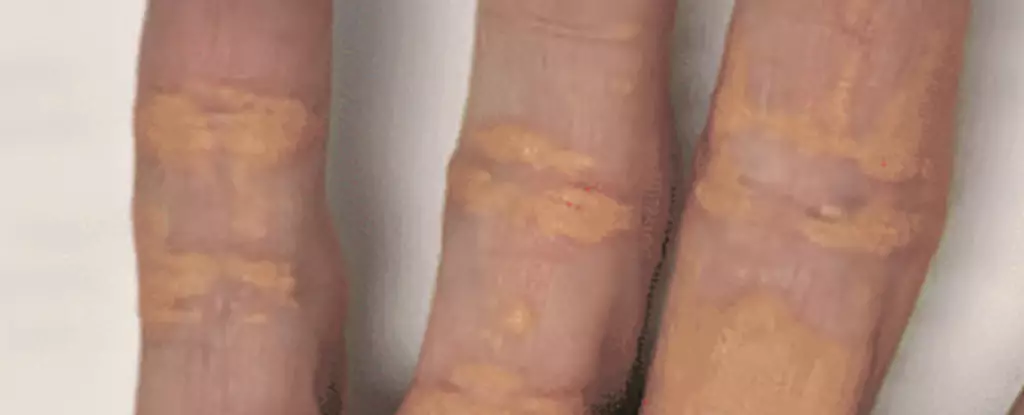In recent years, unconventional diets such as the carnivore regimen have gained traction among health enthusiasts, claiming various benefits including weight loss, increased energy, and enhanced mental clarity. This particular diet is characterized by an exclusive intake of animal products—meats, eggs, and some dairy—while completely eliminating fruits, vegetables, grains, and other food groups. Despite its growing popularity, the carnivore diet poses notable health risks that are often overlooked by its followers. A troubling case from Florida underscores these dangers, highlighting the profound implications of adhering to such a restrictive lifestyle.
A man in his 40s sought medical attention after observing asymptomatic yellowish nodules on various parts of his body, including his palms, elbows, and soles. These peculiar changes had developed over three weeks, following an exhaustive eight-month commitment to the carnivore diet. Reports indicate that his dietary habits included an alarming consumption of up to 9 pounds of fatty foods daily, often supplemented with additional fats. He soon learned that these dietary choices had significantly raised his cholesterol levels—soaring to over 1,000 mg/dL, which is more than five times the health standards deemed suitable for adults.
The yellow marks on the man’s skin were diagnosed as xanthelasma, a condition characterized by cholesterol deposits that typically appear near the eyes but can manifest elsewhere. This condition not only serves as a visible warning sign of a potentially deeper malaise but also signifies lifestyle choices that could lead to severe health consequences down the line.
Xanthelasma does not emerge in a vacuum; it is closely tied to hyperlipidemia, or high cholesterol, which can fuel various health conditions. The excessive cholesterol coursing through the man’s bloodstream put him at significant risk for heart disease, diabetes, and other chronic illnesses. Additionally, it has been linked to dangerous conditions such as stroke, kidney disease, and even certain types of cancer. The cumulative effect of a high-fat diet, particularly one as unbalanced as the carnivore diet, can lead to a backlog of cholesterol, obstructing blood pathways and jeopardizing organ function.
Moreover, research has suggested a correlation between elevated cholesterol levels and increased dementia risk. High cholesterol can induce the buildup of plaques in blood vessels, potentially impeding cognitive function and leading to neurodegenerative diseases. This alarming connection indicates that the ramifications of extreme dieting extend beyond immediate physical appearances, underscoring an urgent need for individuals, especially those on restrictive diets, to remain vigilant about their long-term health.
Potential Treatments and Lifestyle Changes
While xanthelasma itself might not be painful, the associated health risks shine a spotlight on the need for dietary reform. The unfortunate man in this case will likely need surgical intervention—such as laser therapy or cryotherapy—to remove the visible deposits on his skin, emphasizing a critical lesson that medical professionals stress continually. Health experts often advocate for comprehensive lifestyle changes rather than fleeting dietary fads, as the implications of extreme diets can manifest in both physical and internal health issues.
It is imperative for dieters to consider balanced approaches that allow for a wide range of nutrients, minimizing the likelihood of encountering severe health challenges. Full recovery and a return to a healthy state depend heavily on diet modifications and responsible eating habits that incorporate fiber, vitamins, and essential nutrients.
The Florida man’s case serves as a grim reminder that while alternative diets might attract followers for their alleged benefits, the consequences of extreme nutritional practices can be dire. This situation calls for a shift in public perception regarding dieting trends, promoting informed decisions that prioritize overall well-being and long-term health. As the popularity of niche diets continues to rise, education and awareness become pivotal in discouraging practices that could ultimately lead to regrettable health outcomes. Recognizing the delicate balance required for a sustainable lifestyle may help prevent similar cases from emerging in the future, steering aspiring dieters toward a more wholesome and balanced diet.


Leave a Reply